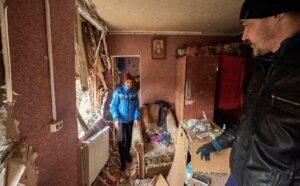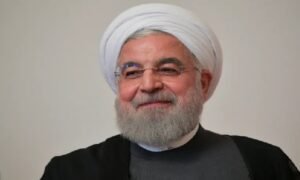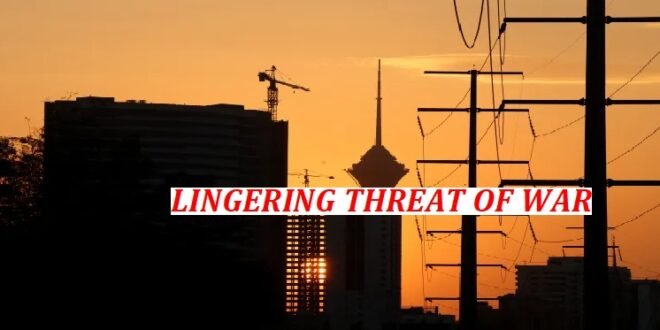23-10-2025
TEHRAN: As reinstated sanctions bite and the persistent chance of renewed war with Israel lingers, authorities in Iran are adopting a defiant posture, but one that masks a jockeying for influence within the ruling establishment.
 United Nations sanctions were re-imposed this month by European powers through the “snapback” mechanism of the 2015 nuclear deal with world powers. Negotiations between Iran and the E3, France, Germany, and the United Kingdom were not successful in preventing the reintroduction of the sanctions, and Iran has signaled that it is not willing to compromise on its stance.
United Nations sanctions were re-imposed this month by European powers through the “snapback” mechanism of the 2015 nuclear deal with world powers. Negotiations between Iran and the E3, France, Germany, and the United Kingdom were not successful in preventing the reintroduction of the sanctions, and Iran has signaled that it is not willing to compromise on its stance.
Iran believes that agreeing to the current deal proposed by the West including a demand that there be a total ban on Iranian nuclear enrichment would amount to a capitulation but the sanctions are further weakening an Iranian economy that is already suffering, with inflation now at more than 40 percent.
And that, coupled with mounting public frustration, is forcing the government to find policies that will stave off criticism, while political infighting bubbles under the surface.
Supreme Leader Ayatollah Ali Khamenei has maintained a defiant posture towards the United States and its allies, saying in a televised speech earlier this week that Tehran would not “submit to impositions” by Washington.
He also shot back against Donald Trump personally, saying the US president used “a handful of empty words and buffoonery” during his trip this month to the Middle East for the Gaza ceasefire agreement. Trump said that the Gaza deal had come about partly because of Israel’s 12-day war with Iran, which began after surprise Israeli strikes in mid-June.
Iran’s top military commanders also maintain that they have recuperated from the losses sustained during the war, and remain ready to launch ballistic missiles and other projectiles at Israel and US interests again if the country is attacked.
 “Our next response will certainly be stronger than the response to the 12-day war,” said Mohammad Pakpour, who was appointed commander-in-chief of the Islamic Revolutionary Guard Corps (IRGC) after his predecessor was assassinated by Israel.
“Our next response will certainly be stronger than the response to the 12-day war,” said Mohammad Pakpour, who was appointed commander-in-chief of the Islamic Revolutionary Guard Corps (IRGC) after his predecessor was assassinated by Israel.
To bolster this message and muster public support, Iran continues to emphasise nationalist sentiment something the theocratic establishment hardly did before the war.
In the capital and across the country, authorities continue to prop up statues and banners depicting Iranian kings and mythical figures dating back centuries before Islam in an attempt to show that Iranians have pushed back armed enemies for millennia.
This week, a giant statue was unveiled in Isfahan’s Shahinshahr, depicting Rostam, a legendary hero in Persian mythology, atop his famous horse, fighting an evil dragon.
In addition, a municipality-backed organization put huge screens on the sides of a truck moving through Tehran, depicting a Roman emperor being captured by a Persian emperor, alongside more modern imagery, including Iranian missiles being fired but even as Iran projects military readiness and nationalist pride, it faces worsening economic pain.
In addition to rising inflation, the local currency hovers close to an all-time low value against the US dollar, after Khamenei rejected direct talks with Washington.
The re-imposition of the aforementioned sanctions is rejected by Iran, along with China and Russia, who argue that the original sanctions have now expired under the terms of the 2015 nuclear agreement. (Int’l Monitoring Desk)
 Pressmediaofindia
Pressmediaofindia




